News & Media
International conference at Unisa reimagines ODeL in the Global South
From 6 to 10 May 2024, Unisa will be hosting its inaugural International Teaching and Learning Conference. This exciting event brings together scholars, educators, researchers and practitioners from across the globe, to explore the ever-evolving landscape of open, distance and eLearning (ODeL) in the Global South. Themed Charting New Frontiers and New Perspectives, the conference is testament to Unisa’s commitment to pursuing new ideas and approaches in OdeL.
Charting new frontiers through collaboration
Prof Meahabo Magano, Executive Director: Department of Tuition, Support and Facilitation of Learning, applauded the university’s 150th anniversary milestone in shaping futures while serving humanity, through continuous teaching and learning.
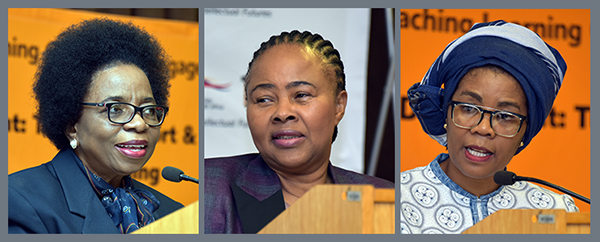
Prof Meahabo Magano, Executive Director: Department of Tuition, Support and Facilitation of Learning; Prof Zodwa Motsa-Madikane, Vice-Principal: Teaching, Learning, Community Engagement and Student Support; and Unisa Principal and Vice-Chancellor, Prof Puleng LenkaBula
She said that this year Unisa received more than 350 000 registered students in the first semester, demonstrating the university’s unparalleled global reach through its flagship ODeL model. Magano led a round of applause in celebration of both academic and administrative staff for reaching this significant milestone, stating that through teaching, learning and leveraging knowledge, the university can innovate and reach new frontiers.
"Unisa is always focused on improving on its teaching and learning practices," concluded Magano, "as evidenced by this conference which will chart new frontiers and new perspectives to advance teaching and learning. The university will continue to do so through collaborating with international experts and discovering new teaching and learning methods, with a focus on the future of education in the Global South."
Learning to teach
In her welcome address, Prof Zodwa Motsa-Madikane, Vice-Principal: Teaching, Learning, Community Engagement and Student Support, said that teaching and learning are practices that have enabled humans to evolve throughout the centuries. She underscored the ongoing commitment of scholars to both pedagogy and lifelong learning, stating: "We continue learning to teach, and learning to learn."
Reimagining pedagogy
In her opening address, Unisa Principal and Vice-Chancellor (VC), Prof Puleng LenkaBula, stated that many countries are contending with wars, and that universities are being decimated. As a result, she said, teaching and learning have become a distant aspiration for many. In this regard, the VC cited the war between Israel and Palestine, and the displacement of the people of the Democratic Republic of Congo because of mineral resources being looted from their land. "The urgencies for self-determination are being decimated because of global greed," she continued. "This begs the question: how and what do we teach?"
The VC said that in South Africa’s 30th year of democracy, academics should think about education and its liberation imperatives.
"The distribution of ownership of technology between the Global South and Global North is not symmetrical," said the VC, "and this poses a challenge of continuity for many African universities."
The VC remarked that as an African higher education institution, Unisa has an important role to play in shaping the futures of ODeL in Africa. She continued: "We have to explore various dimensions crucial to its advancement, including teaching and learning philosophies, technology-enhanced education, curriculum transformation, student support, assessment strategies, and inclusivity and diversity of higher education policies. We have to align these with the United Nations’ Sustainable Development Goals, as we do with the National Development Plan 2030 and Africa’s Agenda 2063."
The VC said that in large parts of the Global South, teaching and learning philosophies often emphasise collective, community-centred approaches, both in experience and contextual learning, unlike in the Global North, where they emphasise individuality. She explained: "The latter approach sees individuals as larger that their communities, laying the ground for the philosophies of capitalism."
LenkaBula concluded her address by posing a critical question:Whe "n will African languages play a greater role in communicating complex subjects like mathematics, science and technology?" She proposed that this topic be incorporated into the conference agenda, emphasising the importance of both reimagining pedagogical approaches, and promoting the use of indigenous languages within the African educational landscape.
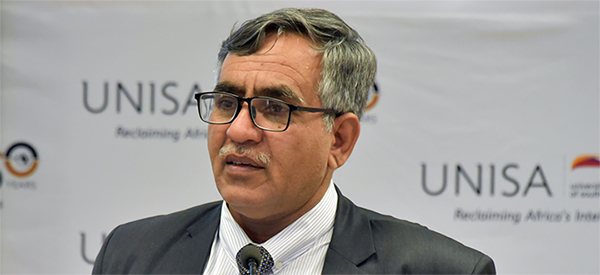
Prof Muhammad Mohsin Javed, Director of Quality Enhancement, Registrar, and Dean of the Faculty of Science and Technology at the Virtual University of Pakistan (VU)
Technology-driven education
In his keynote address, Prof Muhammad Mohsin Javed, Director of Quality Enhancement, Registrar, and Dean of the Faculty of Science and Technology at the Virtual University of Pakistan (VU), described the remarkable strides of the university since its establishment in 2002. He shared the growth of VU through leveraging technology by providing exclusive e-learning, using free-to-air television broadcasts to provide lectures, making them accessible to a wide range of audiences regardless of their location, and making use of the internet to offer course materials, interactive channels and communication with lecturers.
Javed said that VU has a network of over 200 campuses across more than 125 cities in Pakistan, which act as support centres that provide students with access to facilities and infrastructure for examinations.
Regarding costs, Javed explained that VU was established to offer quality education at a low cost which is affordable compared to other traditional universities in Pakistan.
In conclusion, Javed said that VU was established by the government of Pakistan, and it functions as a public university, a not-for-profit entity.
Throughout the teaching and learning conference, there are breakaway sessions in which the attendees, comprised of scholars, educators, researchers and practitioners, will be deliberating on concepts such as continuous professional development to improve online teaching, enhanced ODeL practices, gamification of data analysis techniques to help undergraduates transition to postgraduate studies, and artificial intelligence (AI) for enhanced teaching and learning in South Africa’s ODeL approach, among others.
* By Godfrey Madibane, Acting Journalist, Department of Institutional Advancement
** Photography by Shooheima Champion, Multimedia Centre
Publish date: 2024-05-09 00:00:00.0


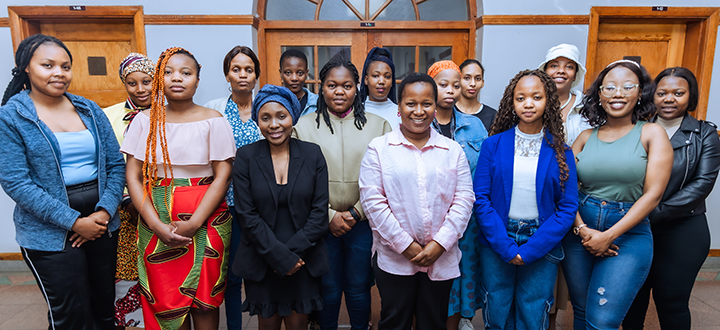 Second cohort of the Bosadi Artisan Creative Media Business Start-up Programme launched
Second cohort of the Bosadi Artisan Creative Media Business Start-up Programme launched
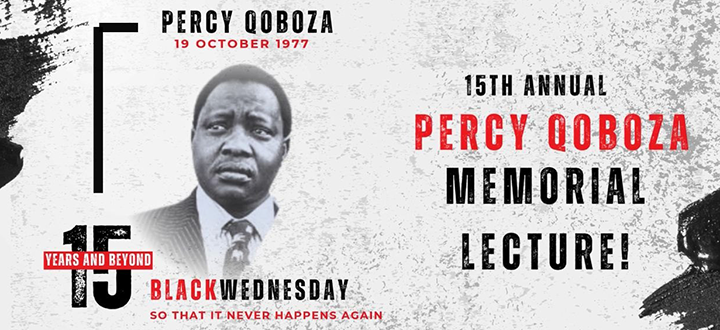 Percy Qoboza remains a luminary voice for truth and justice in the digital era
Percy Qoboza remains a luminary voice for truth and justice in the digital era
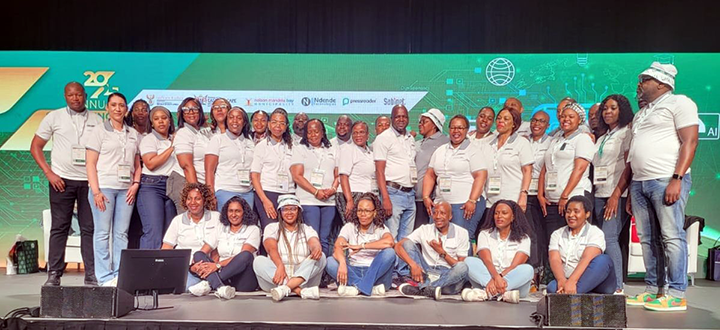 Unisa celebrates excellence at LIASA Conference
Unisa celebrates excellence at LIASA Conference
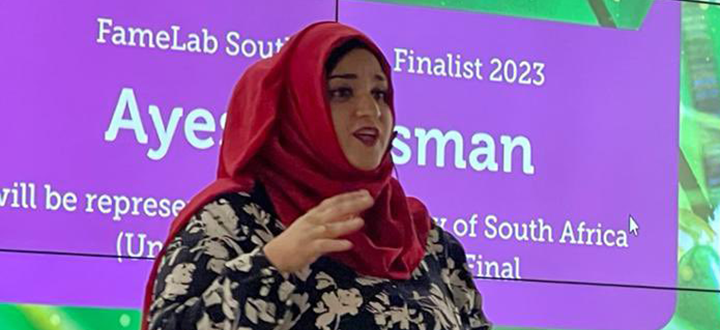 From personal struggles to national reach
From personal struggles to national reach
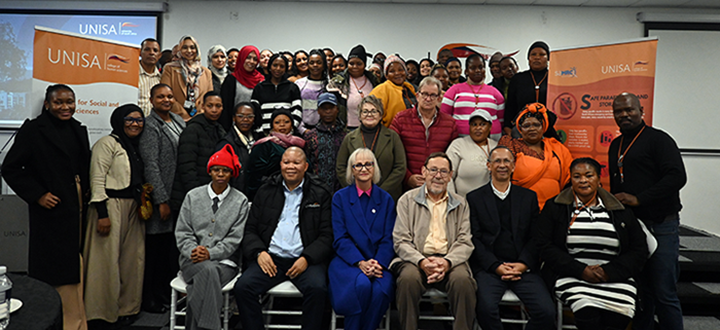 Why South Africans need safer energy alternatives
Why South Africans need safer energy alternatives